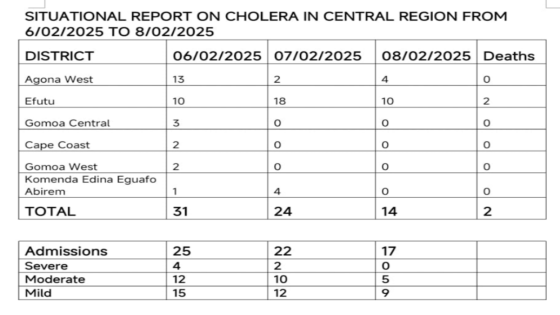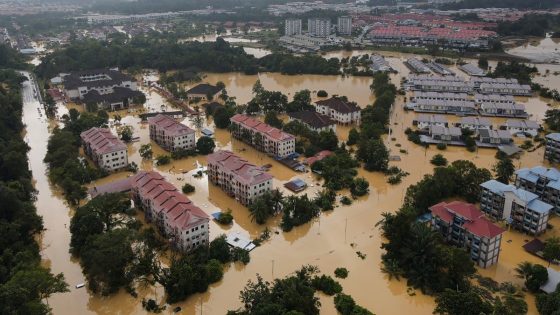Cholera cases in Ghana‘s Central Region have surged recently, raising concerns among health officials. From February 6 to 8, 2025, a total of 69 cholera infections and two fatalities were reported. How can communities better prepare for such outbreaks?
- 69 cholera cases reported in Central Region
- Efutu has highest cases and deaths
- Hospital admissions decreased over three days
- Severe cases reduced to none by 8th
- Moderate and mild cases declined steadily
- Disclaimer on reader contributions and opinions
Cholera Outbreak in Central Region: What You Need to Know
Cholera is a serious health threat that can spread rapidly. Are you aware of how it can affect communities? The recent outbreak in Ghana’s Central Region highlights the importance of awareness and preventive measures to combat this disease.
Understanding the Cholera Situation in Ghana’s Central Region
The cholera outbreak has affected several areas, with Efutu reporting the most cases. Here’s a breakdown of the situation:
- Efutu: 38 cases, 2 deaths
- Agona West: 19 cases
- Gomoa Central: 3 cases
- Cape Coast: 2 cases
- Komenda Edina Eguafo Abirem: 5 cases
Hospital Admissions and Case Severity Trends
Hospital admissions fluctuated during the outbreak, indicating the severity of the situation:
- February 6: 25 admissions
- February 7: 22 admissions
- February 8: 17 admissions
Severe cases decreased from four to none over the three days, showing a potential improvement in the situation.
Preventive Measures Against Cholera Outbreaks
Preventing cholera requires community action and awareness. Here are some effective strategies:
- Promote handwashing with soap and clean water.
- Ensure access to clean drinking water.
- Educate communities about cholera symptoms and treatment.
- Encourage proper sanitation practices.
By implementing these measures, communities can reduce the risk of cholera outbreaks.
Conclusion: Staying Informed and Prepared
Staying informed about health threats like cholera is crucial. Communities in both Ghana and the U.S. should prioritize preventive measures and education to protect public health.

































